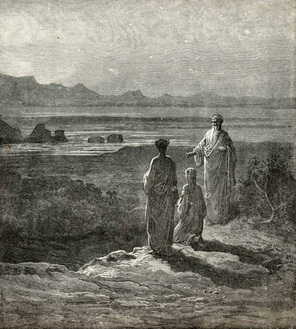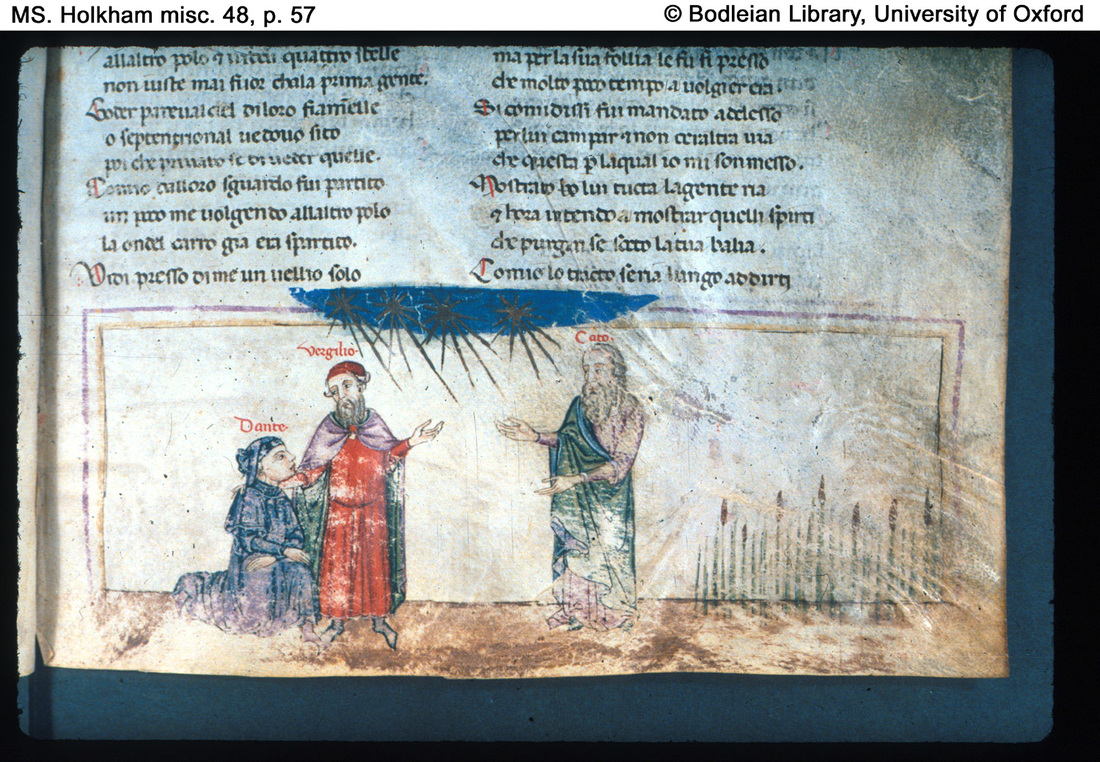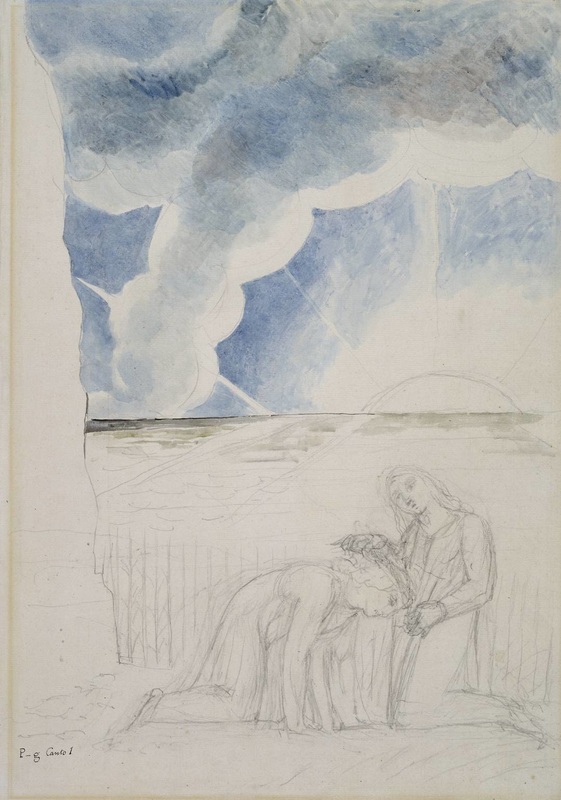 Dore: Purgatorio-Canto I
Dore: Purgatorio-Canto I Please read the original material, each and every Canto and the notes and commentary that are part of your particular translations, before looking over my comments. I will not unpack all of the subtleties and nuances of this great work: not by a long shot. This is a blog of my own reflections as I read this miraculous work for the seventh time. Hence, I am merely thinking and reflecting aloud, so to speak. Please do read and dig and discover on your own too. Dante will amply repay all your effort.
Spilling The Beans
I am a proud father of two, daughter and son, who now also have a daughter [born to my daughter] and son [born to my son]. There were always times with both my children and grandchildren when they were very young when they could not keep a secret; especially when it came to giving gifts. One of them would bring the gift to my wife or myself, barely able to contain their excitement at what they knew would be the best gift in the world! Indeed, often they would blurt out the surprise before the package was even half opened: “Merry Christmas Mommy… It’s a dishrag I made in school for you!” And my wife and I would ooh and aah over the ‘surprise’ gift.
That is how I’ve felt for the last month about beginning this section of the Commedia with you. The Purgatorio is truly remarkable in so many ways, I’ve started this initial blog several times… SEVERAL times. Like my beloved little ones, I realized I was telling you what to look for and what surprises awaited before we ever got to the particular Canto. However, Dante the Poet does not tell us what to expect or watch for. Instead, like a flower slowly unfolding petal by petal, he walks us through this part of the Medieval universe and we find new lessons and profound differences from and superficial similarities with our experiences in the Inferno. So, I’ve deleted all the prior reflections and decided to simply walk with Virgil and Dante the Pilgrim, listening, learning and discovering along with them. Let me encourage you, however, to stay with us on the journey. The language and poetry grow more beautiful and profound the further we go, and to assume we know about the Commedia simply based on the Inferno is like assuming you know all about Paris based on your exploration of the sewers below the city. You may wish to read about the theology of Purgatory in your translation of Purgatorio, or even check out Dorothy Sayers version with its excellent notes. However, even if you just dive in and learn as you go, there is beauty, pain, growth and grace awaiting each of us as we continue the journey. Join me.
In Plato’s Allegory of the Cave, the prisoner who is set free crawls up out of the cave where he lived only in shadows and muted light to see upon standing free the brilliant light and open space of truth. Dante, of course, discovered hard and bitter truths in the journey down, down through Hell, but now he too stands in the open air of hope and divine Grace. It is expressed in the subtlest and most beautiful of ways. As he and Virgil finish crawling down, then up the leg hairs / fur of Satan, they stand up and find color, fresh sea air and stars that had never been seen since the dawn of humanity.
13 Sweet color of oriental sapphire,
Dolce color d'orïental zaffiro,
14 hovering in the calm and peaceful aspect
che s'accoglieva nel sereno aspetto
15 of intervening air, pure to the horizon,
del mezzo, puro infino al primo giro,
16 pleased my eyes once more
a li occhi miei ricominciò diletto,
17 as soon as I had left the morbid air
tosto ch'io usci' fuor de l'aura morta
18 that had afflicted both my chest and eyes.
che m'avea contristati li occhi e 'l petto.
We have here a stark contrast to the fetid and choking atmosphere of self-hate, anger and fear which Dante the Pilgrim had been breathing since beginning the journey. Indeed, I would say even before he began the journey, for it was his twisted view of this world and its hatreds and prejudices and pride that led him astray in the first place. He breathed the air of war and duplicity even before he set foot in Hell.
Not now. As he comes up out of the self-referent, self-hating, self-absorbed realm of the Inferno we know immediately that all is different here. Love shines from Venus, “the fair planet that emboldens love.” The stars shine down in purity and nobility. The four stars he saw almost certainly were not the Southern Cross but rather the four cardinal virtues that are God given guides for us all in Classical Ethics as well as Medieval Christianity: prudence, justice, fortitude, and temperance. These are above the world from God and not earned as a result of any moral progress on the part of humanity. Robert Hollander of Princeton notes: “What is important to understand … is that these virtues were infused and not earned -- which again points to Adam and Eve, the only humans born before Christ who had the virtues infused in their very making.”
Now we need to be clear that Purgatory is not a lesser Inferno. Instead every person we meet from here on out is, in reality, heaven bound. This can better be described as heaven’s porch than anything else. That is why the first person we see should shock our socks off: Cato the non-Christian who rejected Caesar’s claim to Emperor and who ended up committing suicide as a result of losing his battle against him. Cato refused to live his life as a slave. He choose integrity, freedom and truth in the act of suicide. Hence this differs completely from the selfish and even petulant acts of the suicides we spoke with in the Inferno. But more than this we find that a pagan can be saved in God’s economy, based upon the divine truths that are part of the Imago Dei in every human being. The four cardinal virtues that shine in the stars above also seem to shine out from Cato’s very being:
31 I saw beside me an old man, alone,
32 who by his looks was so deserving of respect
33 that no son owes his father more.
34 His beard was long and streaked with white,
35 as was his hair, which fell
36 in double strands down to his chest.
37 The rays of those four holy stars
38 adorned his face with so much light
39 he seemed to shine with brightness of the sun.
We discover that he is in fact watching over the entire mountain of Purgatory. This is a place of willing discipline, not forced suffering, for the sake of becoming closer to Christ’s Image and drawing nearer to heaven. There is a place for rest and there is a time to grow, and we will find Cato chastising these two when they do not accept the seriousness of the times and the importance of this place. All this from a pagan suicide dude.


 RSS Feed
RSS Feed
